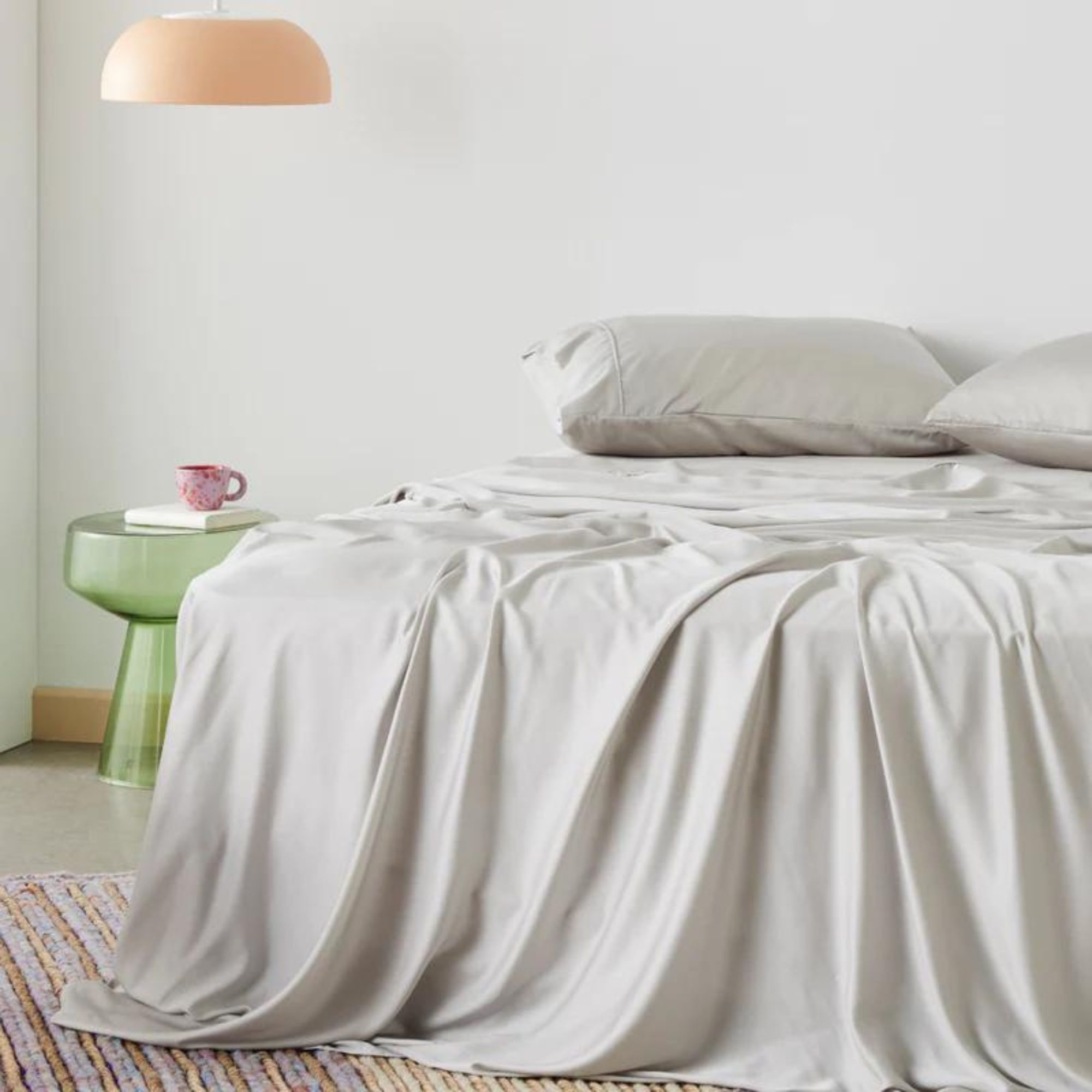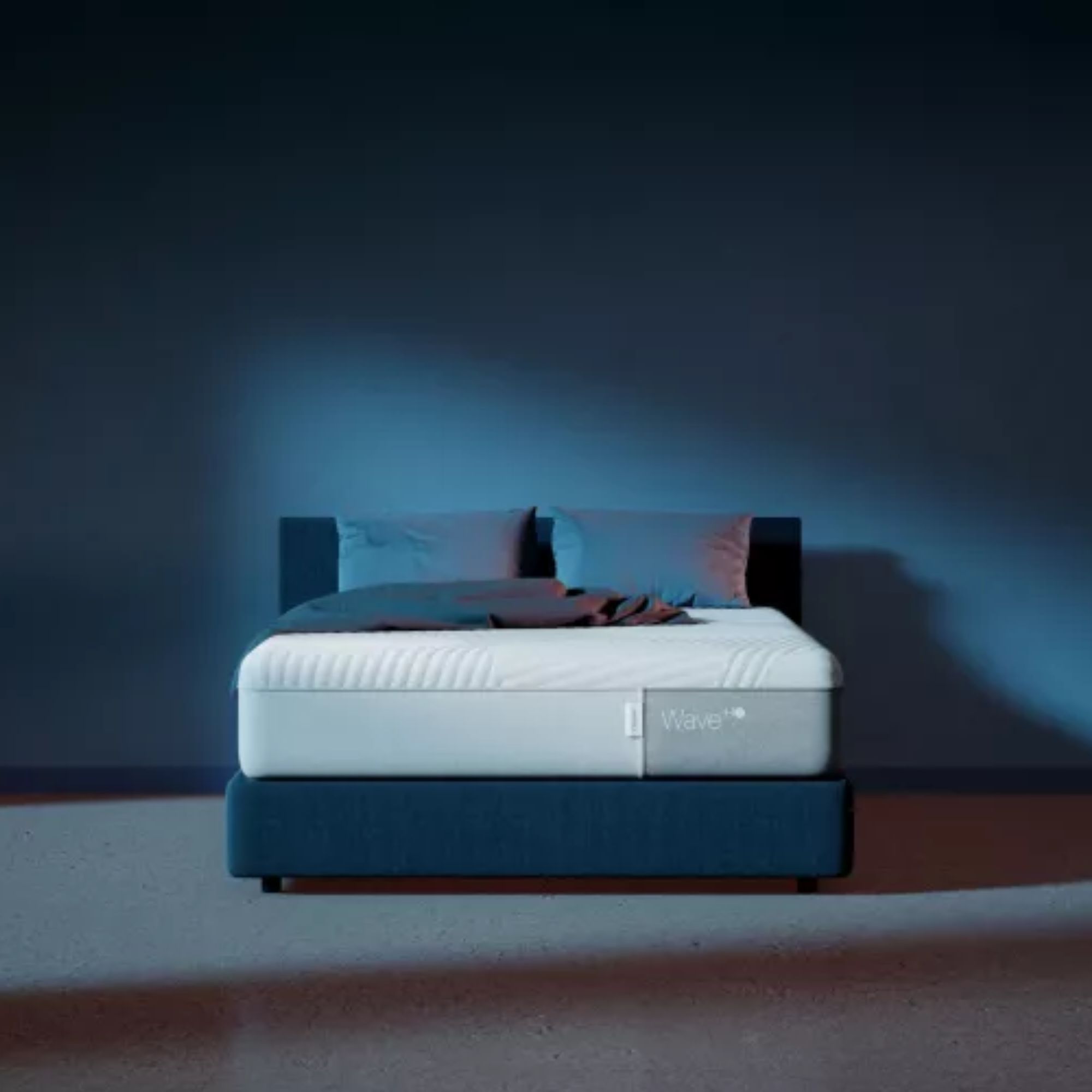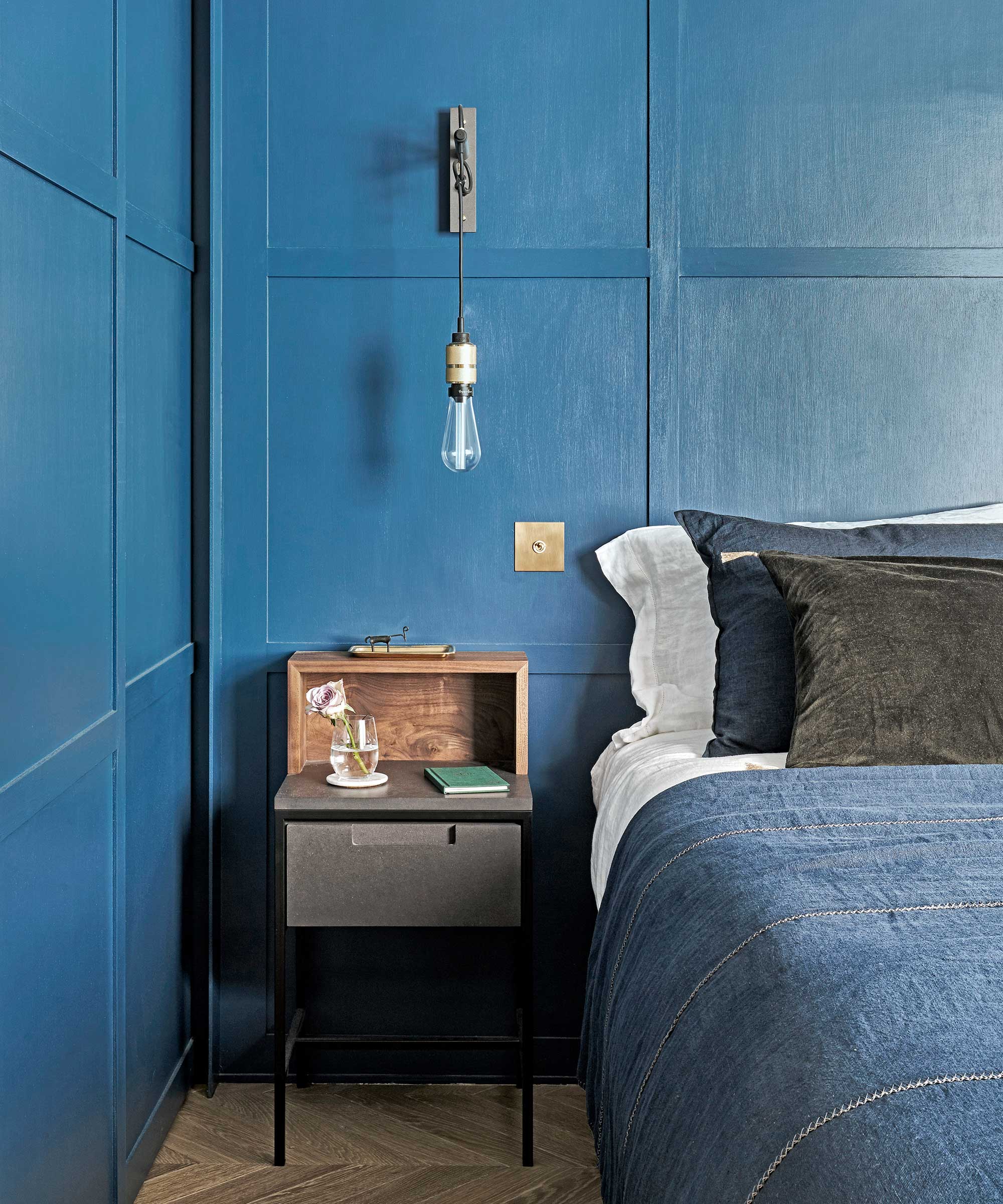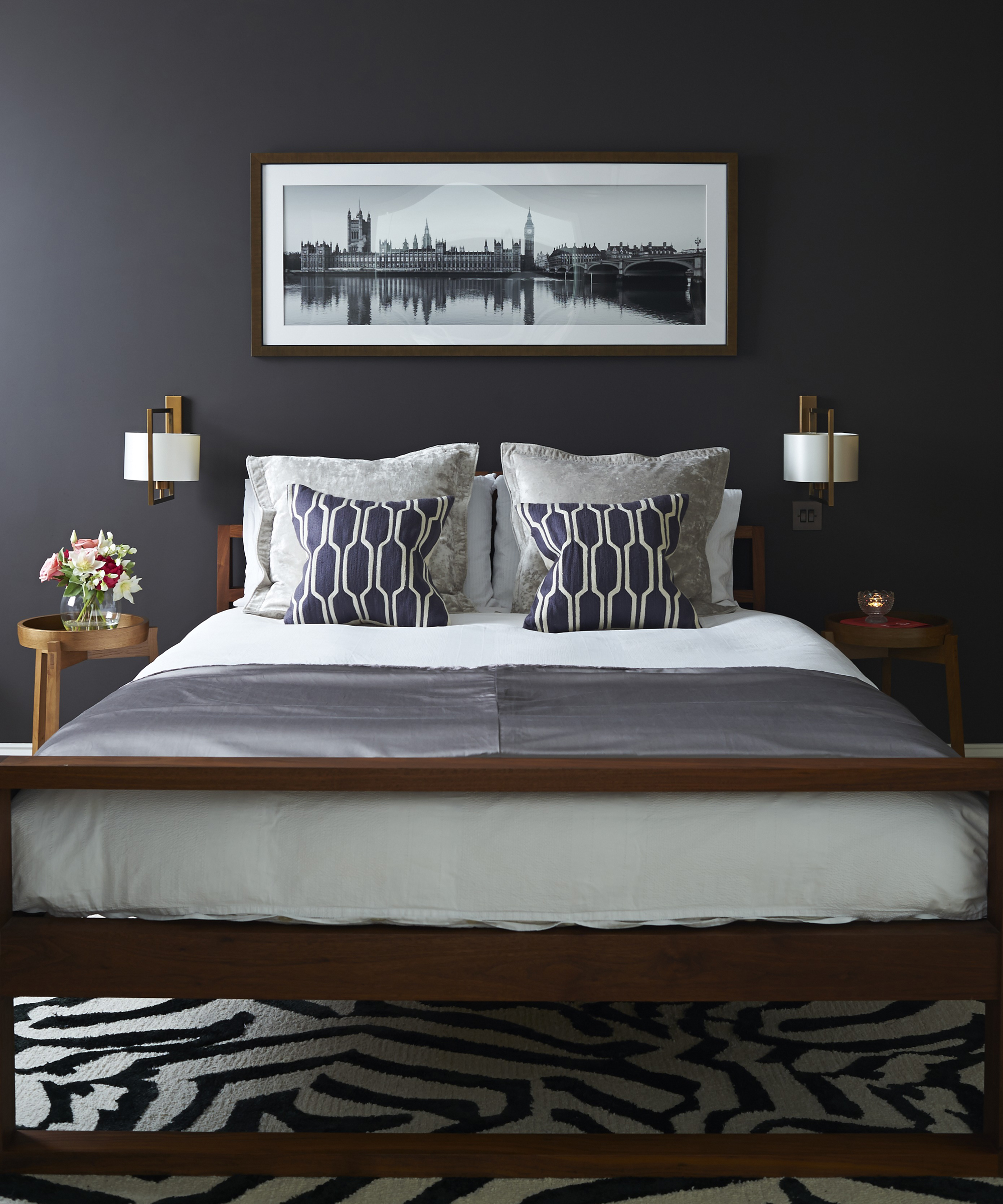
It's certainly a dramatic name, but 'sleep divorce' could save your sleep, ensuring you get a good night's rest.
A recent survey from the American Academy of Sleep Medicine (AASM) has shown that more than a third of Americans are occasionally or consistently sleeping in another room from their partner, something known as a ‘sleep divorce.’
'Sleep divorce' sounds drastic, but if you've got the space, a sleep divorce can mean you get much better sleep. Sleeping next to someone can be terrible for your sleep hygiene. Whether it's snoring, sleep talking, or just someone else's body heat, sleeping next to a partner can cause you to miss out on hours of crucial sleep. and create resentments that spill into the rest of your relationship.
Sometimes even the best mattress won't get you you any rest. If your partner's snoring, fidgeting, tossing and turning, sleep divorce can ensure you get all the sleep you need.
What is 'sleep divorce'?

Although sleeping in a shared bed is the norm for many couples, it doesn’t always lead to a great night’s sleep. In fact, sleeping in separate bedrooms might be good for your sleep. This has been termed a ‘sleep divorce’, according to Dr Lindsay Browning, neurologist, psychologist and sleep expert.
'Many people worry that their relationship will suffer if they don’t share a bed with their romantic partner. However, as long as you make time for intimacy at times other than sleep time, then this can help to mitigate any issues,' added Dr Browning. 'Although snuggling someone during the night can help release oxytocin (the love hormone), if you are being kept awake and frustrated by the lack of sleep due to your partner, then any potential benefit will be overridden'.
The AASM reported that 45% of men said they ‘occasionally or consistently sleep in another room’, but only 25% of women said they did the same. Dr. Seema Khosla, pulmonologist and spokesperson for the AASM, said that 'We know that poor sleep can worsen your mood, and those who are sleep deprived are more likely to argue with their partners. There may be some resentment toward the person causing the sleep disruption which can negatively impact relationships.'
Dr Khosla added that 'getting a good night’s sleep is important for both health and happiness, so it’s no surprise that some couples choose to sleep apart for their overall well-being.'
When should you try a sleep divorce?
When a partner snores, sometimes sharing a bed with them can cause problems falling asleep and staying asleep. Not only can this be frustrating for the person being kept awake, but the lack of sleep can lead to irritability as well as impact physical and mental health if you are not getting the recommended amount of sleep. If your partner snores very loudly, especially with noticeable pauses in their breathing during the night, or wakes up to take a gasp of breath, this is indicative of sleep apnea. 'Sleep apnea is a serious condition that should be treated because it can cause sleep deprivation to the sufferer as well as put a strain on the heart. If you think that you or your partner may have sleep apnoea, you should speak to your doctor about getting treatment,' advises Dr Browning.

However, snoring isn’t the only potential problem when sharing a bed with somebody else. When you share a bed with someone, your sleep may be disturbed by their natural movements during the night. If you’re struggling with being too hot or too cold in the bed, than sharing a bed with somebody else can make matters even worse. Sharing a bed with another body can mean you get too hot in the bed and it can be difficult to take off or put on the bed covers if you have a shared comforter.

If you sleep hot, Ettitude's sheet set, made of CleanBamboo fabric, is our sleep expert's pick for the best cooling sheets. She runs hot at night but found this set naturally cooling, temperature regulating and smooth to touch, these moisture-wicking sheets kept me (a sweaty sleeper) cool at night. She Ioved the silky look for some bedroom luxury, but warns that it might not work for every style.

This remarkable comforter feels like down but with none of the ethical concerns. It kept our hot-sleeping tester cool in summer and feels incredibly comfortable. The only issue is that given as it's the best cooling comforter it's a little thin. If you like your bedspread to look plush, this might not work for you.

Our expert reviewer found this mattress literally cold to touch. In fact, it's the best cooling mattress, as it more than stood up to a steamy Georgia heatwave with no AC. If you sleep hot it's a great investment, but it really is an investment - our biggest criticism is the hefty price tag.
Is there any scientific evidence to support 'sleep divorce'?
There aren’t many scientific studies specifically looking at the advantages and disadvantages of sleeping together in terms of objective sleep quality, and those that have studied it come up with conflicting results. However, while there's no objective measures inconsistent sleep, anecdotally most people who choose to sleep separately say that their sleep improves.
According to Dr Browing, 'almost 53% of adults who started a sleep divorce say that it improved their sleep quality. On average, [they had] 37 minutes more sleep each night when they slept separately compared to when they shared a bed'.
Can a sleep divorce improve your relationship?
Nutrition coach Liberty Mills also told me that she recently tried a sleep divorce, and it has worked extremely well for her and her partner.
'As a nutrition and fertility coach you may be surprised to know that for the last 18 months my partner and I have had a ‘sleep divorce’ and it’s also something I often recommend to my fertility clients. The reason we started sleeping in separate rooms is because I’m an early bird and my partner is a night owl, and we wanted to be able to keep to our own rhythm. Each night my partner will come to ‘my room’, we will read, play cards, catch up and connect without screens, then I will sleep, and he will go watch a movie, read and then retire an hour or so later to another bedroom.
'In the morning I can then get up and leave the house to go the gym without disturbing him and return bright as a button and bring him coffee in bed with a smile,' she added.
What are the benefits of a sleep divorce?

'Sleep divorce can drastically improve relationships. Sleep is an essential part of our overall well-being, especially with mental health', says Jennine Estes, a licensed marriage and family therapist, and owner of Estes Therapy. 'When people struggle with their sleep, they are unable to regulate emotionally, they have difficulty having patience with one another, resentment builds, and arguments increase, all of which cause a wedge in the relationship,' Jennine, who is also the author of Help for High Conflict Couples, told me. The more rested the body, the better people can regulate their emotions, have empathy toward others, and communicate more effectively.
The first benefit is obvious. A sleep divorce will improve the quality of your sleep. When sleeping separately, each partner can create their own tranquillity and bedtime routine without disruption. They can have quiet, create their own rituals, and get sound sleep when they eventually get to bed.
The second is that a ironically, a sleep divorce can improve your relationship. It's straightforward - your quality of life and relationship improve with enough sleep. Being well-rested helps increase the ability to emotionally regulate, decrease irritability, improve mood, have patience with others, and problem-solve better.
Finally, it can directly improve your intimacy. It's not just that you're well-rested and less irritable with your partner, but also that you have to be intentionally intimate. Paradoxically, being apart brings you together, because you have to make yourself make time for your partner rather than being around them by default. Sleep divorce forces couples to make intimacy a clear, well-defined priority.
What are the drawbacks of a sleep divorce?

However, there are of course some drawbacks to consider. The first is shame. There's a stigma around sleep divorce and often couples hide the fact that they sleep separately. Shame will continue to grow so it is important to talk about it and acknowledge the sleeping dynamic as a normal part of your life.
That shame is due to judgement. There is still a cultural expectation in the U.S. that if people sleep separately, there must be a problem in the relationship. If you think a sleep divorce would work for you, be confident in your decision to sleep separately.
Finally, if you don't take the time to create intimate moments, you can lose some of your connection with your partner. Starting and ending the day with your partner is extremely bonding. Sleeping in the same bed allows room for closeness, intimacy, spontaneous conversations, and connection. If you don't make time your your partner, sleep divorce removes this element.
One of my favorite tips with sleep divorce is to try using two single comforters instead of one in a shared double bed. It's not only a good option if you're tight on space and don't have another bedroom, but it can be a helpful compromise if you don’t want to sleep in separate beds.






